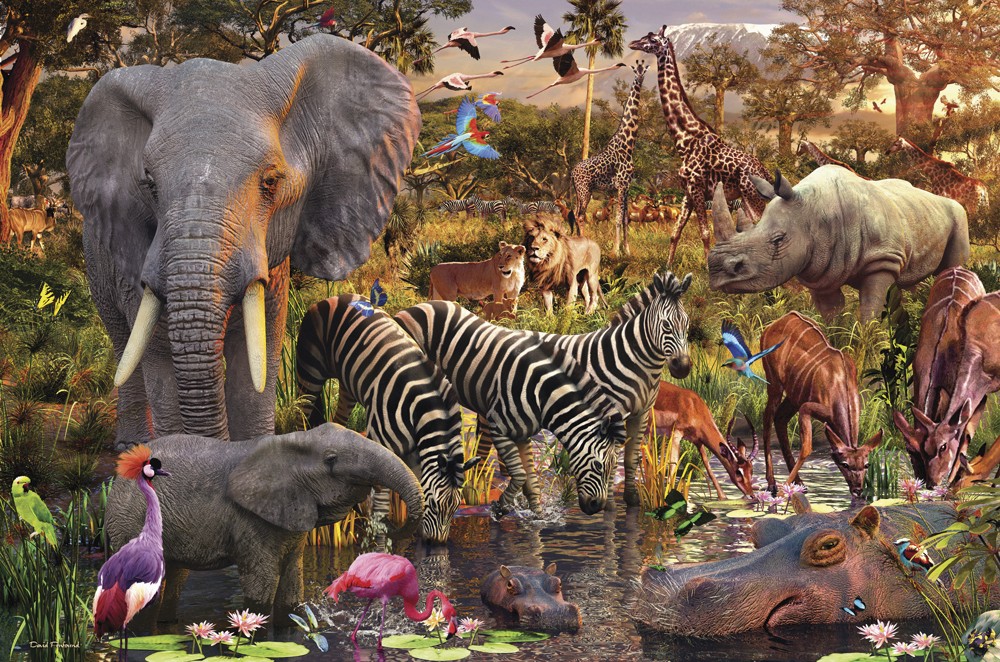Tampilkan postingan dengan label Kratts. Tampilkan semua postingan
Tampilkan postingan dengan label Kratts. Tampilkan semua postingan
Kamis, 05 Januari 2017
Wild Kratts Live! in Morristown, NJ Jan 11, 2015 1:30 PM Eventful
Senin, 02 Januari 2017
Wild Kratts Live
 The word "animal" comes from the Latin animalis, meaning having breath, having soul or living being. In everyday non-scientific usage the word excludes humans – that is, "animal" is often used to refer only to non-human members of the kingdom Animalia; often, only closer relatives of humans such as mammals and other vertebrates, are meant. The biological definition of the word refers to all members of the kingdom animalia, encompassing creatures as diverse as sponges, jellyfish, insects, and humans.
The word "animal" comes from the Latin animalis, meaning having breath, having soul or living being. In everyday non-scientific usage the word excludes humans – that is, "animal" is often used to refer only to non-human members of the kingdom Animalia; often, only closer relatives of humans such as mammals and other vertebrates, are meant. The biological definition of the word refers to all members of the kingdom animalia, encompassing creatures as diverse as sponges, jellyfish, insects, and humans.Where Do Crocodiles Live in the Wild Crocodile Habitat and
and Information About Wildlife and Animal Life and Survival in Africa

The Mahaffey: Wild Kratts Live
Frei.Wild Live in Frankfurt 2014 Torrents Torrent Butler
Sabtu, 31 Desember 2016
Download Wild Kratts Live Wallpaper for Android by amronav apps
 Most known animal phyla appeared in the fossil record as marine species during the Cambrian explosion, about 542 million years ago. Animals can be divided broadly into vertebrates and invertebrates. Vertebrates have a backbone or spine (vertebral column), and amount to less than five percent of all described animal species. They include fish, amphibians, reptiles, birds and mammals. The remaining animals are the invertebrates, which lack a backbone. These include molluscs (clams, oysters, octopuses, squid, snails); arthropods (millipedes, centipedes, insects, spiders, scorpions, crabs, lobsters, shrimp); annelids (earthworms, leeches), cnidarians (jellyfish, sea anemones, corals), and sponges. The study of animals is called zoology.
Most known animal phyla appeared in the fossil record as marine species during the Cambrian explosion, about 542 million years ago. Animals can be divided broadly into vertebrates and invertebrates. Vertebrates have a backbone or spine (vertebral column), and amount to less than five percent of all described animal species. They include fish, amphibians, reptiles, birds and mammals. The remaining animals are the invertebrates, which lack a backbone. These include molluscs (clams, oysters, octopuses, squid, snails); arthropods (millipedes, centipedes, insects, spiders, scorpions, crabs, lobsters, shrimp); annelids (earthworms, leeches), cnidarians (jellyfish, sea anemones, corals), and sponges. The study of animals is called zoology.Steppenwolf Born To Be Wild Live 2006 YouTube

Wild Live At Squamish Outdoor Rock Concerts
Mr Big Wild World Live at Budokan 2009 YouTube

Steppenwolf Born To Be Wild Live 2006 YouTube
 Thanks for Visiting this Article
Thanks for Visiting this Article
What : MSC Opas hosts Wild Kratts Live !
Salmon Wild Live
wildlifepic
Wild Kratts—Live! YouTube

What : MSC Opas hosts Wild Kratts Live !
Minggu, 25 Desember 2016
When is Wild Kratts LIVE! coming to the Upstate?
 The word "animal" comes from the Latin animalis, meaning having breath, having soul or living being. In everyday non-scientific usage the word excludes humans – that is, "animal" is often used to refer only to non-human members of the kingdom Animalia; often, only closer relatives of humans such as mammals and other vertebrates, are meant. The biological definition of the word refers to all members of the kingdom animalia, encompassing creatures as diverse as sponges, jellyfish, insects, and humans.
The word "animal" comes from the Latin animalis, meaning having breath, having soul or living being. In everyday non-scientific usage the word excludes humans – that is, "animal" is often used to refer only to non-human members of the kingdom Animalia; often, only closer relatives of humans such as mammals and other vertebrates, are meant. The biological definition of the word refers to all members of the kingdom animalia, encompassing creatures as diverse as sponges, jellyfish, insects, and humans.Wild Kratts Live Comes to Spartanburg
Beautiful Pictures and Videos

National Geographic Wild Safari Live
Salmon Wild Live
Selasa, 20 Desember 2016
Wild Kratts Live in Madison, WI Apr 19, 2015 4:30 PM Eventful
Paul McCartney And Wings / Wild Live / 2CD GiGinJapan
Distantly related to the larger, betterknown blackandwhite giant
Wild Live At Squamish Outdoor Rock Concerts
Tags:Wild Wolf Live HD Wallpaper,fun,photo,images,pics,screenshots
Minggu, 18 Desember 2016
Wild Kratts Live In Action!
Running Wild Live Encyclopaedia Metallum: The Metal Archives
Download Wild Life Live Wallpapers for android, Wild Life Live
Wild Life Live! Oregon Zoo
live for around 10–14 years in the wild, while in captivity they can
Jumat, 16 Desember 2016
Wild Kratts Live Tour Giveaway! 12/16 US and Canada ~ Tales From A
Wild Kratts Live Lynn Memorial Auditorium, Lynn, MA Tickets
Wild Dog Pictures National Geographic
Wild Kratts Live In Action!
LIVE YOUNG WILD AND FREE KEEP CALM AND CARRY ON Image Generator
Langganan:
Komentar (Atom)